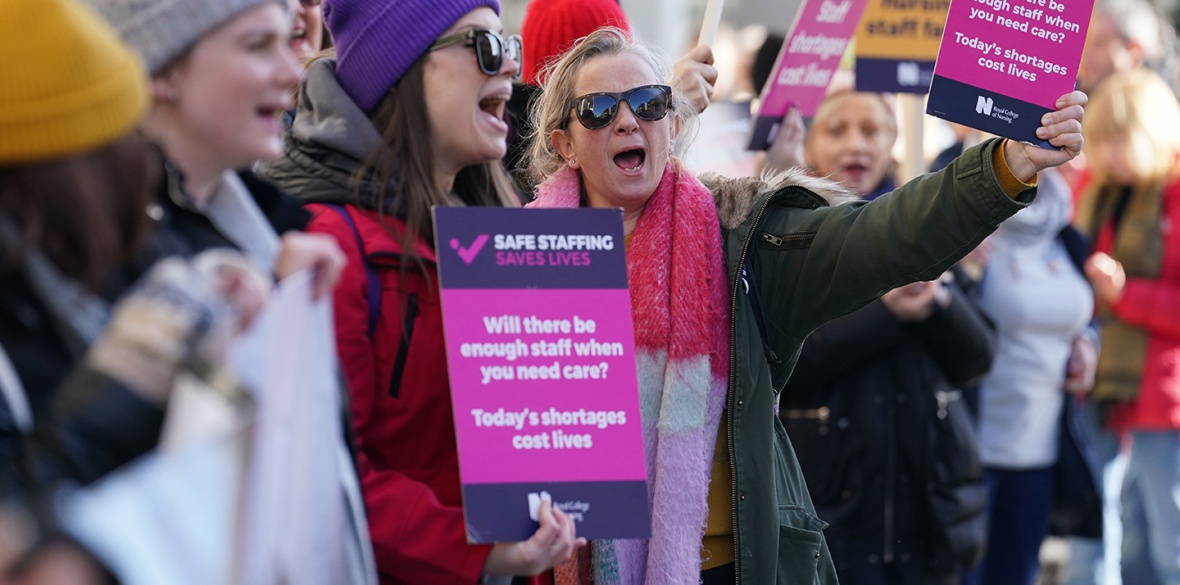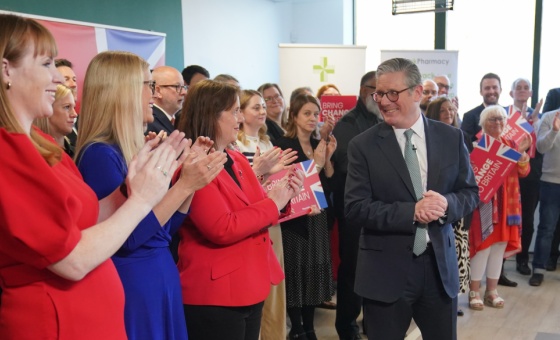This is the last article you can read this month
You can read more article this month
You can read more articles this month
Sorry your limit is up for this month
Reset on:
Please help support the Morning Star by subscribing here
WOMEN are under attack in every aspect of their lives. This is true both domestically and internationally. This string of attacks must be confronted and defeated, otherwise we face the risk of many of the gains that were made over decades being wiped away in a couple of years.
As someone who has witnessed those gains and taken part in some of the struggles to achieve them, the pace at which they are being rolled back is truly astonishing.
Yet it is heartening to witness the organised fightback on a series of fronts, which is creating new organisations and leaderships, as well as reinvigorating more well-established ones.
It is no exaggeration to say that these attacks affect every aspect of our lives. It is mainly driven by the current economic crisis and includes a series of directly economic attacks.
But it goes further, with inroads into our social and political rights as women, and the hard-won, partial freedoms we had previously achieved.
Sadly, but almost inevitably all women of colour internationally have been even more disadvantaged, even more under attack. In this country that is primarily black and Asian women.
Globally the current cost of living crisis, which is really a co-ordinated attack on living standards, affects women more directly.
They are more often the household member who is forced to budget for much higher prices, bills and rent, while wages and benefits have been sharply falling in real terms.
The United Nations found that internationally women were also far more likely to have lost their jobs during the pandemic or to have had their pay and conditions cut.
They were also more likely to suffer a permanent reduction in pay, even though the pandemic appears to have peaked, at least for the time being.
In this country, that is certainly true. With the connivance of the government, employers have used the pandemic and then the economic crisis as a battering ram against women’s hard-won gains over decades.
Most glaringly the gender pay gap for full-time workers rose in both 2021 and 2022, a partial reverse of a long-term if glacial downtrend. For all employees the gender pay gap stands at 14.8 per cent.
Yet this is only one of the more flagrant abuses. In a recent report the Living Wage Foundation found that 60 per cent of all jobs paying below the living wage were held by women.
Of course, no-one should be paid below the living wage. But the discrimination inherent in employment is sharply underlined by the fact that over two million women are paid below the living wage, representing one in seven women workers.
At the same time, 1.4 million men are also paid below the living wage, equivalent to one in 11 male workers.
Clearly, the fight against low pay is primarily for fairness, for a decent standard of living and against poverty. But it is also a struggle against discrimination and for the rights of women.
But we know that the fightback is well under way. Whatever the outcome of the talks with the health unions, three remarkable facts stand out.
There were unprecedented levels of co-ordination and sometimes even synchronisation of union action. The government completely lost the public, whose sympathies are overwhelmingly with the health workers (and with many others taking action). To cap it all, the Royal College of Nursing took significant industrial action for the first time in its existence.
The old gap between professional bodies who never strike and workers’ unions who do is breaking down under the impact of chronic relative pay reductions, which have now become acute.
It will come as no surprise that women are the majority of nurses. But it may surprise some that way over three-quarters of the entire NHS workforce is women, as are almost half of doctors.
A similar proportion operates in education, where three-quarters of teachers are women. The largest teaching union, the NEU, has just delivered a massive vote for strike action. Increasingly in some of our essential public services, a woman’s place is on the picket line.
If the attacks on women are very far from confined to the workplace, neither is the fightback. Internationally, we have watched in horror as the years of Democrat administrations in the US promising to codify Roe v Wade law actually yielded the bitter fruit of the Supreme Court overturning it.
This has led to sharp curbs on a woman’s right to choose in Republican-led states. It also boosted all the reactionary anti-choice political movements internationally.
In this country, healthcare workers have warned of a crisis in abortion provision with rising demand and restricted access to services in many areas.
There is the growth of “advice centres” providing misleading and anti-choice information as well as harassment of women outside clinics.
Thankfully the Abortion Rights campaign and others continue to agitate for the fundamental rights of women over their own bodies. This right to choose is inescapably a labour movement issue.
The state is also interfering in fundamental rights of women to operate in society free from harassment and sexual violence. The conviction rate for rape has effectively dropped to around one in 100 cases. One of the most serious offences has in practice been decriminalised.
Simultaneously, women’s trust in the police has broken down. This is not just because of the abysmal conviction rate for serious sexual offences.
It is also because of the actions and attitudes of police themselves. A recent acting commissioner for the Metropolitan Police said that the bulk of rape allegations were “regretful sex.”
And the numbers of officers directly responsible for serious sexual and other offences are too numerous to be ascribed to “bad apples.” Either the police are recruiting dangerous predators or they are creating them.
Yet, ever since the vigil for Sarah Everard it is also clear that women are refusing to accept this bullying and violence, even if the police respond with more bullying and violence. Women are being forced into resistance by the government’s complicity in all of this.
That is why it seems extremely unlikely the Tories could win the next general election. In a recent poll for Ipsos the Labour lead over the Tories among men was a healthy 13 per cent. But the lead over the Tories among women was a whopping 33 per cent!
If there is to be a Labour government, it will mainly be delivered by women. But for all women that would only be a staging-post in the fight to restore our rights and for equality, not the destination. We still have a world to win.
Diane Abbott is Labour MP for Hackney North and Stoke Newington.










